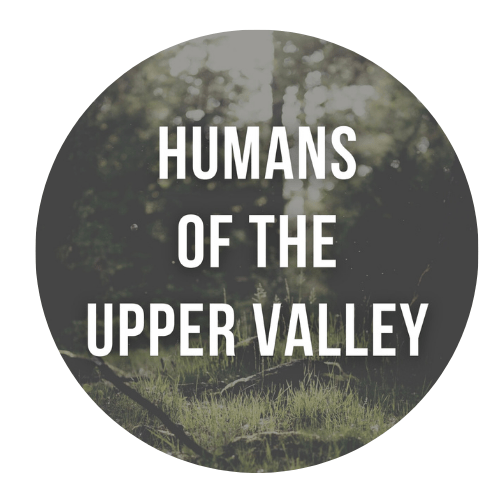“I’m lucky to be old enough to have experienced the prior traditional culture in rural New England. I had a great aunt who lived in a nursing home near us. She and her friends, who were all in their 90s, would sit on our porch in rocking chairs and tell stories to us kids sitting around them, and they had comedic routines that they used to do for talent nights at church. One of them had a shoe box full of little clippings and funny readings with which she would entertain us. That sense of interrelatedness and good humor is still a vision for me of what is possible in community. But when I graduated from high school in Hanover, I said, “I’m out of this backward corner of the world. I’m on to bigger and better things.” Only after my wife and I had a couple of kids and had lived in New York City for a while, did life in “small town” Upper Valley seem more attractive than career.
I was originally a scientist. I studied biology in college and went to graduate school for developmental biology, working on the interaction of cells in brain development. But I had a kind of crisis; I was working 18-hour days at a children’s hospital in Boston, and I felt terribly disconnected from what was actually going on in the world and that my work in science wasn’t socially relevant. So, when I got a chance to work in community development in Maine, I left science and went into social science–in which I had no background whatsoever. My wife and I were directors of a project in a rural community there, starting a furniture factory, a quilt cooperative, a preschool, and a number of other projects. After a few years, we moved back to the Upper Valley because of my father’s declining health. Here I worked as a low-income outreach worker and, when my clients said that housing was their biggest problem, I developed affordable housing. In retirement, I have been working on environmental issues – to reduce the energy burden of low-income renters through energy efficiency.
My religion is a major motivator of my work in the community. The Church was part of my childhood experience, but I was “too sophisticated” after college to have anything to do with it. My connection with religion changed when I volunteered in 1965 for Martin Luther King’s Southern Christian Leadership Conference. I met many civil rights leaders and worked with a seminary student from Texas who had been beaten at demonstrations. Seeing the courage and commitment of Christians who participated in civil rights encouraged me to reconvert to Christianity. My wife and I have long been members of a local church which started the Haven shelter and hosted the beginnings of the Good Neighbor Health Clinic.”
Jon Chaffee, Lebanon, NH




